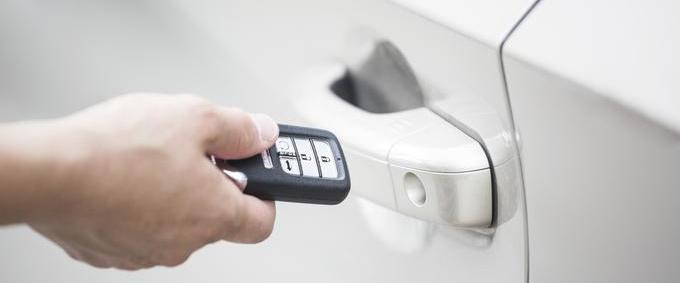Key Hacking - What You Need To Know
You may be familiar with vehicles with keyless entry - maybe you or somebody you know drives one, and whilst this fantastic new technology makes drivers lives easier, it has also created an opportunity for thieves.
Key hacking - or car hacking as it is sometimes referred to - is gaining access to a car when the key is nearby, without having the press the button on the fob.
When the key fob is close to the car, it is emitting short-range signals which tell the car to unlock. Car thieves have found ways to scan for these signals and hack them in order to break into cars.
Key hacking can also be known as relay theft. This is because the thieves use car key relay boxes near your home to receive signals coming from your car key fob. This all happens whilst your keys are inside your home, and the signal passes through windows or walls.
Another box near the vehicle is then used to trick the car into thinking the key is nearby and to unlock the doors. Unfortunately, this technology has opened new doors for car thieves in the UK, who have developed methods to intercept and replicate the key's signal to gain unauthorised access to vehicles.
The rise of key hacking vehicle crime in the UK
Recent statistics highlight a concerning trend in vehicle crime across the UK. According to the Office of National Statistics (ONS), the number of vehicles stolen in England and Wales saw a significant increase of 24.9% year-on-year, with 130,389 vehicles stolen last year, up from 104,435 the previous year. This rise in vehicle thefts has been partly attributed to the vulnerabilities exposed by keyless entry technologies, making certain vehicles more susceptible to theft.
How to prevent car key hacking
Unfortunately, these types of theft have become more and more common. To mitigate the risk of car key hacking, vehicle owners can adopt several protective measures. Storing key fobs in protective cases, such as a car key fob blocker or Faraday bag, can effectively block the signal from being intercepted by thieves.
These metal-lined wallets or bags prevent the key's signal from being cloned or extended to a thief's device, helping to secure the vehicle against unauthorised access. It's also advised to keep keys away from the front door and windows, where thieves are most likely to attempt signal amplification.
Here are some additional preventative measures you can take to prevent your vehicles from being stolen:
Make sure your vehicle’s software has been updated regularly
Using a steering lock will likely put thieves off attempting to break into your car using this method.
Key fob blockers can also be used
What is a key fob blocker?
Key wallets or bags lined with metal are used as car key fob blockers, and you may have heard them referred to as Faraday bags. By blocking the key fob's signal, it prevents thieves from capturing and replicating the signal to access your vehicle. Faraday bags are relatively inexpensive and come in various qualities, so it's important to test the blocker upon purchase to ensure it effectively blocks the signal.
Prices start from around £5, and you may wish to consider purchasing one in order to keep your car safe. Make sure you test the bag yourself once you have bought it.
Always put the keys in the bag as soon as you have locked it, and remember to get one for your spare key in the house too.
Conclusion
The rise of key hacking in the UK underscores the double-edged nature of technological advancements in vehicle security. While keyless entry systems offer convenience to vehicle owners, they also present new opportunities for thieves.
By taking proactive steps, such as utilising key fob blockers and adopting good security practices, car owners can significantly reduce their risk of falling victim to these modern-day car thieves. Keeping informed about the latest security measures and trends in vehicle theft can also help owners protect their valuable assets in an increasingly digital age.
Share this post:






